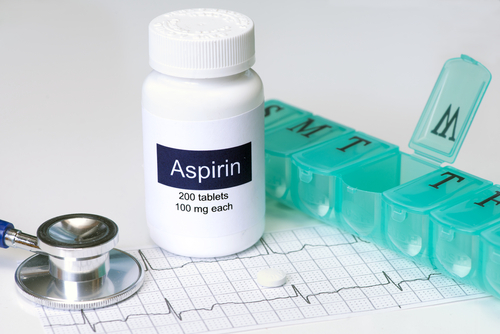Stopping daily aspirin therapy risky for heart attack, stroke patients
ANI Sep 27, 2017
Beware! Suddenly stopping the long-term use of blood-thinning medication may increase the risk of suffering a heart attack and stroke by 37 percent higher, warns a recent study.

Aspirin, taken in low doses, is used to help reduce the risk for recurrent heart attack or stroke as it inhibits clotting, lowering the risk of cardiovascular events.Nearly 10 to 20 percent of heart attack survivors stopped daily aspirin use within the first three years following their event.Researchers from Uppsala University in Sweden examined the records of 6,01,527 people, who took low-dose aspirin for heart attack and stroke prevention between 2005 and 2009.The participants were older than 40, cancer-free and had an adherence rate of greater than 80 percent in the first year of treatment.They found that one out of every 74 patients who stopped taking aspirin had an additional cardiovascular event per year.A 37 percent higher rate of cardiovascular events for those who stopped aspirin therapy compared to those who continued.
"Low-dose aspirin therapy is a simple and inexpensive treatment," said lead author Johan Sundstrom.Sundstrom added that as long as there's no bleeding or any major surgery scheduled, they showed the significant public health benefits that can be gained when patients stay on aspirin therapy.Previous studies have suggested the patients experience a "rebound effect" after stopping aspirin treatment, this is possibly due to increased clotting levels from the loss of aspirin's blood-thinning effects.Because of the large number of patients on aspirin and the high number who stop treatment, the importance of a rebound effect may be significant, Sundstrom stated.The American Heart Association recommends that people at high risk of heart attack should take a daily low-dose of aspirin (if told to by their healthcare provider) and that heart attack survivors also take low-dose aspirin regularly.The research appears in Circulation Journal Report.
-
Exclusive Write-ups & Webinars by KOLs
-
Daily Quiz by specialty
-
Paid Market Research Surveys
-
Case discussions, News & Journals' summaries